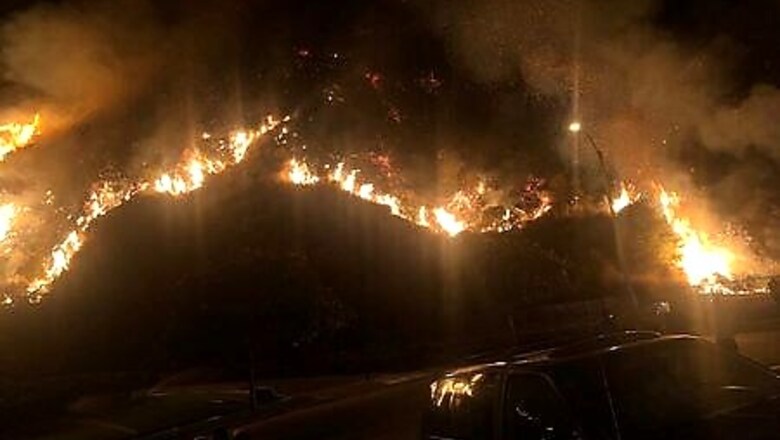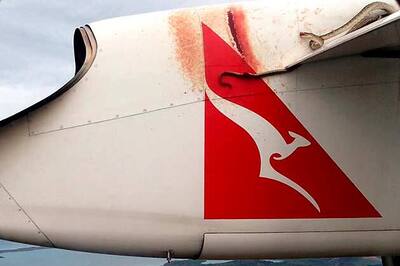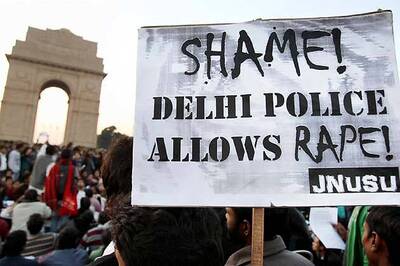
views
Firefighters scrambled to protect thousands of homes from a wildfire racing through brush-covered mountains north of Los Angeles on Friday that caused hundreds of evacuations and burned a handful of structures.
The blaze, dubbed the Lake Fire, has scorched over 11,000 acres (4,451 hectares) and forced 250 people from their houses since erupting on Wednesday afternoon in the Angeles National Forest.
Triple digit temperatures and single digit humidity fanned the flames, and little let-up is expected over the weekend with an excessive heat warning in effect across Southern California.
“Fire behavior is picking up,” said U.S. Forest Service spokesman Andrew Mitchell.
The cause of the blaze was under investigation but human activity is likely to blame, Mitchell said.
No casualties were reported but the blaze prompted the mandatory evacuation of around 100 homes in communities about 40 miles (65 km) north of downtown Los Angeles, with a further 5,000 homes threatened. The blaze was at 12% containment, said Los Angeles County Fire Department spokesman Jake Miller.
The fire destroyed five homes and other structures, according to California Department of Forestry and Fire Protection data.
Much of the area has not had a fire in 60-100 years, allowing flames to move swiftly through fuel-choked canyons, Miller said.
Across the United States, fires have been less ferocious so far in 2020, burning around 1.4 million fewer acres than in the same period of 2019. Conditions are expected to worsen in California next month when Santa Ana winds arrive in the south and El Diablo winds pick up in the North.
In drought-stricken Colorado, the Pine Gulch Fire, burning near Grand Junction, about 190 miles west of Denver, has blackened over 73,000 acres in remote mountain terrain, making it the fourth-largest in the state’s history.
(Reporing by Andrew Hay; Editing by Bill Tarrant and Daniel Wallis)
Disclaimer: This post has been auto-published from an agency feed without any modifications to the text and has not been reviewed by an editor




















Comments
0 comment